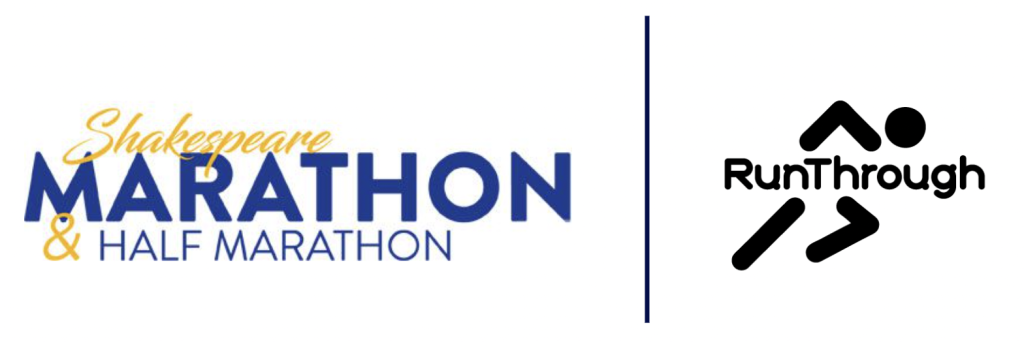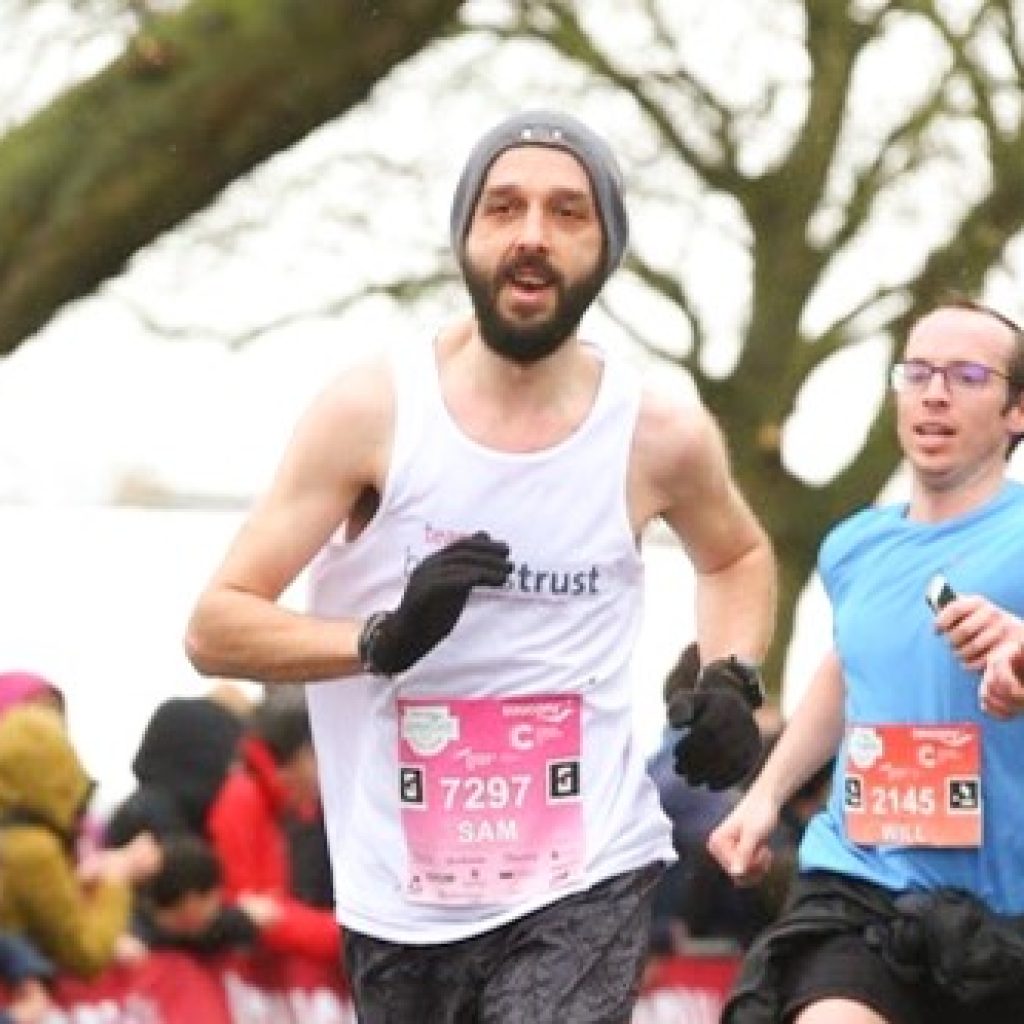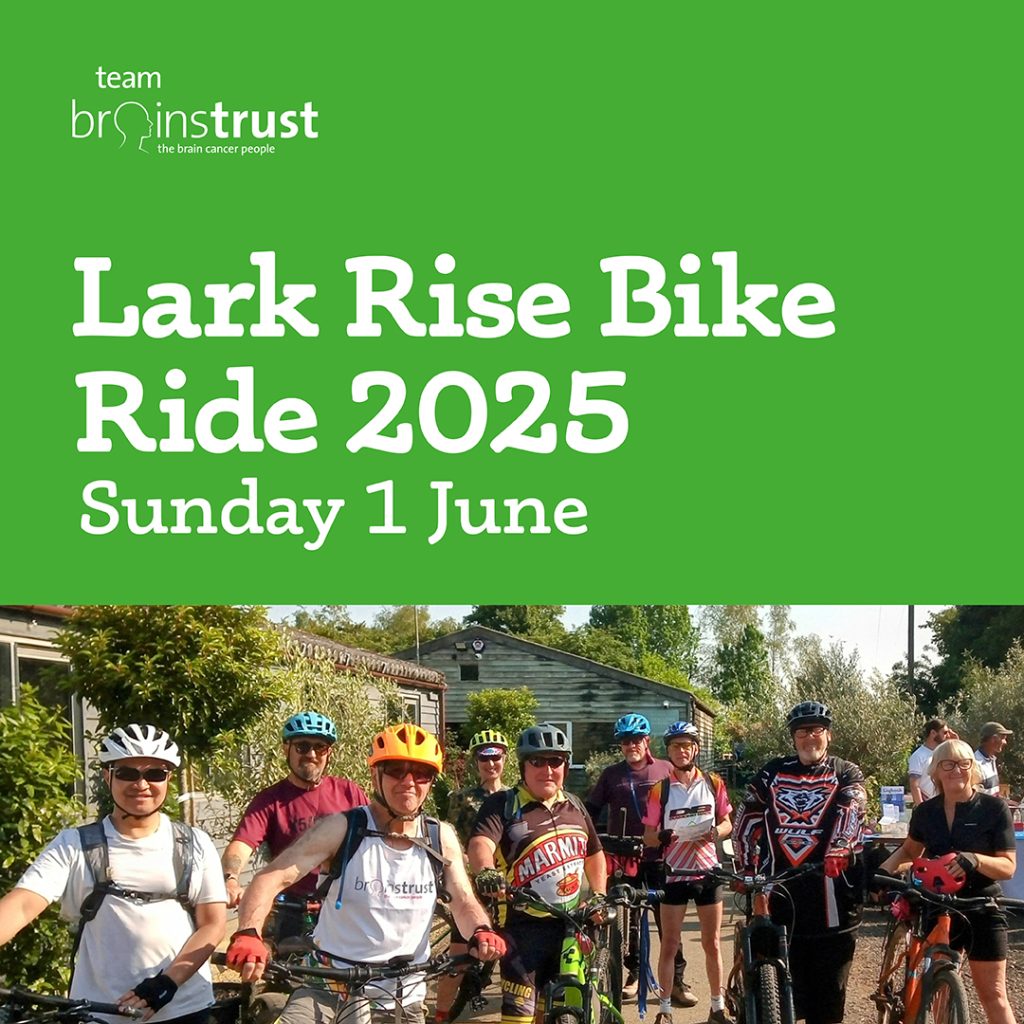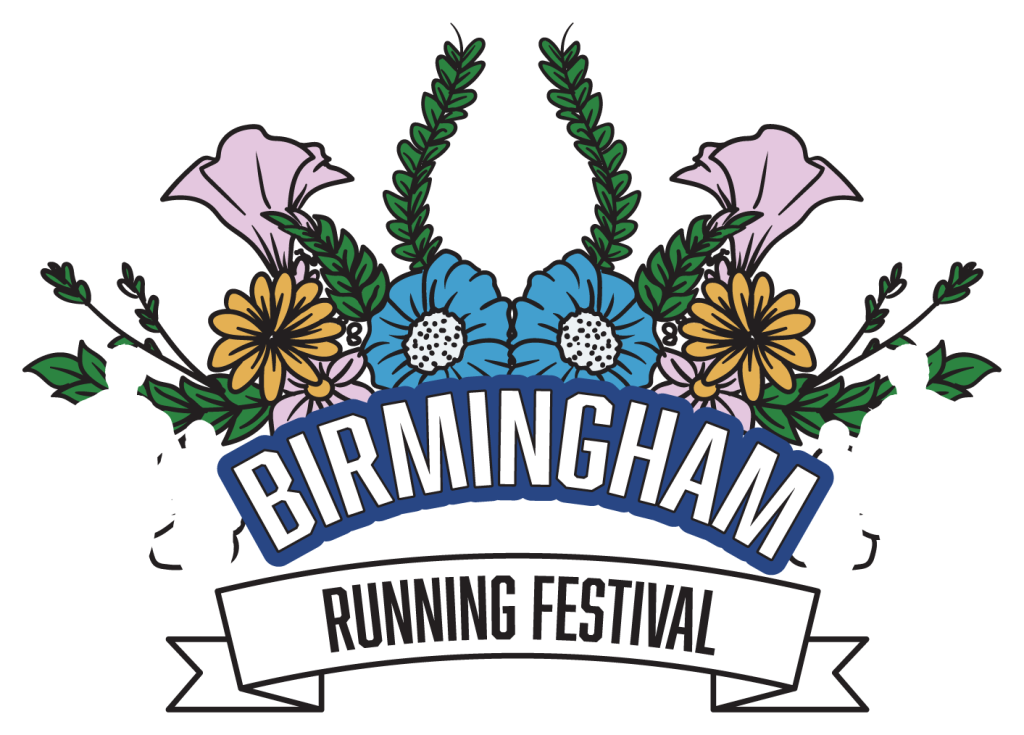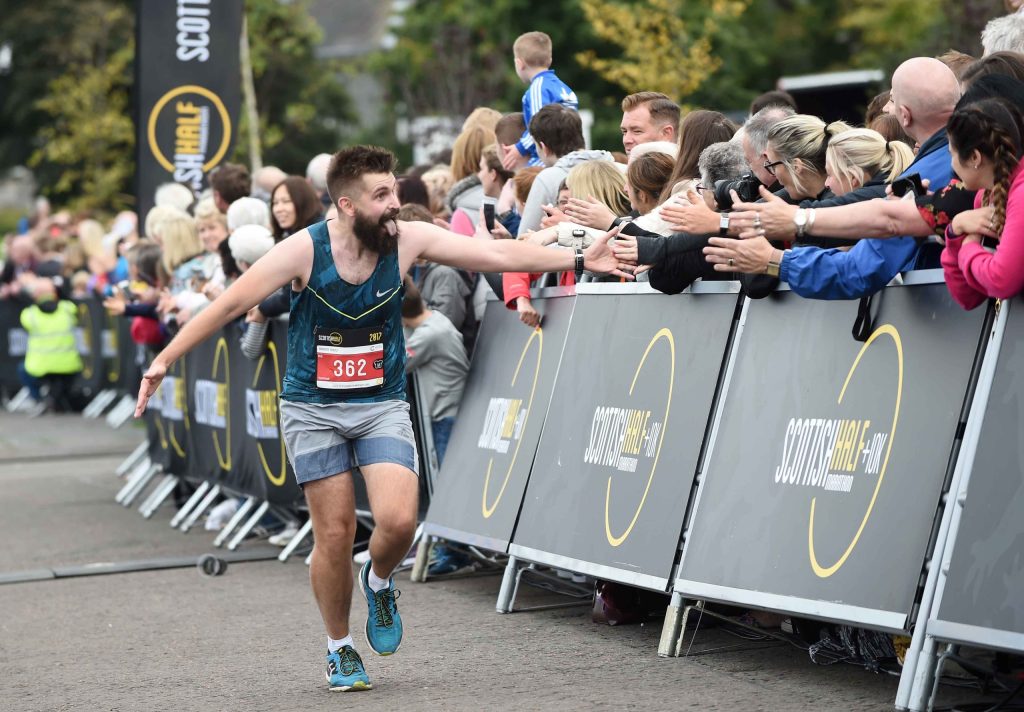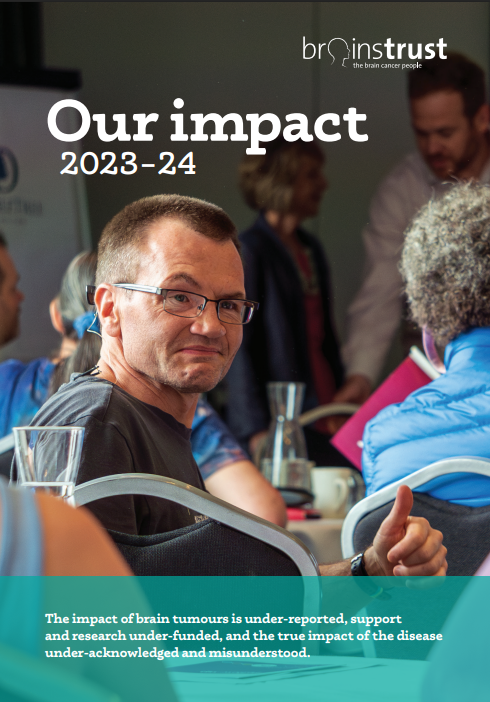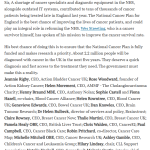brainstrust events
Our Thrive with brainstrust events will help you live better with a brain tumour. Below you can find information about upcoming webinars and meetups, both online and face-to-face. Filter by Patient and Carer events to see what’s happening this month. If you have any questions about our supportive events or would like to book a coaching session, please email hello@brainstrust.org.uk
You can also browse our calendar of upcoming fundraising events and campaigns. For the latest information about races and challenges, please keep in contact with event organisers or email fundraising@brainstrust.org.uk
Running events by region – brainstrust would love you to support the charity by taking on a challenge for us. See what events are available in your region and do something amazing today!
- All Events
- Fundraising Events
- Patient & Carer Events
Colloid Cyst Group – Thurs 24th April 1.00pm
We know that having a colloid cyst diagnosis can feel isolating and information is often hard to find. Come along to this relaxed virtual meetup to connect with others that really get it. There’s no agenda – grab a cuppa and pop along to say hello.
Shakespeare Half Marathon 2025
Join team brainstrust’s mission to help people with a brain tumour at the Shakespeare Half Marathon 2025. This flat and fast route, follows 1 lap for the half marathon and 2 laps for the marathon. The majority of the route follows closed roads around the town, with the remainder on the Stratford Greenway footpath, a hard […]
Shakespeare Marathon 2025
Join team brainstrust’s mission to help people with a brain tumour at the Shakespeare Marathon. This flat and fast route, follows 1 lap for the half marathon and 2 laps for the marathon. The majority of the route follows closed roads around the town, with the remainder on the Stratford Greenway footpath, a hard compact footpath, […]
Calmness and Confidence; hypnotherapy workshop Weds 30th April 7.00pm
This workshop will bring you to the forefront of your life, harnessing the power of neuroscience-informed techniques to anchor you in a state of serene self-assurance.
High Grade group – Thurs 1st May 10.30am
This informal social group is just for people living with a high grade (3/4) tumour diagnosis and their supporters. There are no fixed conversation topics and no agendas. Just pop in to say hello and spend time in the same space as others who understand.
Acoustic Neuroma Group – Fri 2nd May 1.00pm
An acoustic neuroma diagnosis can be a very difficult thing to come to terms with. Come along to meet others who are going through a similar experience. Grab a coffee, say hello, you will be glad you did.
Great Birmingham Half Marathon 2025
Join team brainstrust’s mission to help people with a brain tumour at the Great Birmingham Half Marathon. The AJ Bell Great Birmingham Run is the Midlands’ biggest and best running event, with thousands of Brummie runners taking to the streets every year to challenge themselves and raise cash for charity. There’s everything you’d expect from […]
Great Birmingham 10k 2025
Join team brainstrust’s mission to help people with a brain tumour at the Great Birmingham 10k. The AJ Bell Great Birmingham Run is the Midlands’ biggest and best running event, with thousands of Brummie runners taking to the streets every year to challenge themselves and raise cash for charity. There’s everything you’d expect from a […]
Tea and a wee blether – Tues 6th May 12pm
Grab a cuppa and come and join us for tea and a wee blether!! Here you’ll have the opportunity to meet, chat and connect with others in our community. It’s for anyone affected by a brain tumour diagnosis, and just like our face-to-face meetups it is a warm, welcoming safe space for you. There’s no […]
May Art Time – Weds 7th May 10.30am
Come and join us for our art time , whether you’re a seasoned artist or a novice – join us for a very special two hours to discover how painting can be a wonderful mindful activity, allowing stresses and worries to fade into the background as you focus on the task at hand. Grab your […]
Introduction to Neuroscience informed hypnotherapy – Weds 7th May 2.00pm
This workshop isn’t just about coping: it’s about empowerment. By understanding the psych-neurological aspects of your condition and embracing the potential for change through neuroplasticity, you’ll learn how to establish a foundation of inner strength and positivity that will support you throughout your journey.
Nuclear Races 2025 – 1.5, 3,6 & 12k challenges
Join team brainstrust’s mission to help people with a brain tumour at the Nuclear Races in Brentwood, Essex. Events are open to anyone aged 13 and over and includes challenges at 1.5, 3, 6 & 12km. Nuclear is well known for delivering UK’s most award winning events with big, high quality, achievable, natural & man-made […]
Tough Mudder 5km / 15km Challenge 2025
Join team brainstrust’s mission to help people with a brain tumour at the 2025 Tough Mudder in London. The ultimate obstacle course challenge now has 20+ obstacles over a 15 Kilometre run. With no competition and no timing, it’s just you, your teammates and muddy strangers working together to conquer the course and earn the world-famous orange […]
Great Bristol Run 10k 2025
Join team brainstrust’s mission to help people with a brain tumour at the Great Bristol Run 10k. Each year, thousands of runners push their perseverance and passion to the limit and take on the super-scenic 10k and half marathon routes at the AJ Bell Great Bristol Run. If stunning views, inspiring history and graffiti murals are […]
Your space. Your voice. Time to write! – Wed, 7 May, 11:30am
‘Your space, your voice’ writing workshops From this May we’d love you to take part in our writing workshops to gain confidence sharing your individual story. ‘Your space, your voice’ is a safe place, online, to learn how to draw on your experience of life with a brain tumour, and learn the skills to write […]
Leeds Half Marathon 2025
Join team brainstrust’s mission to help people with a brain tumour at Leeds Half Marathon, Yorkshire’s biggest and loudest event. With a fantastically vibrant atmosphere guaranteed, this run could be right up your street. The much-loved run raises hundreds of thousands of pounds for charity every year and often attracts more than 7,500 runners. The race starts […]
Leeds Marathon 2025
Join team brainstrust’s mission to help people with a brain tumour at the Rob Burrows Leeds Marathon. The Rob Burrow Leeds Marathon will see 7,777 participants take on a brand new route through Leeds that starts and finishes at Headingley Stadium. This is an event that truly is for everyone, so whether you are an experienced runner […]
Epilepsy Seizure Alerts Dogs and Disability Assistance Dogs – Tues 13th May 2.00pm
Did you know that Support Dogs trains epilepsy seizure alert dogs that give a 100% reliable warning before every seizure? Did you know that Support dogs can train your pet dog to be your disability assistance dog to do things you find difficult or painful? Did you know we provide all our services free of […]
Hypnotherapy Workshop; Scanxiety – Weds 14th May 2.00pm
Are you struggling with the overwhelming anxiety that comes with waiting for medical scan results? You’re not alone. “Scanxiety” is a profound experience shared by many, but there’s a powerful way to navigate this emotional journey. Join us for a ground-breaking workshop designed to empower you with the tools to manage and transform your scan anxiety.
Living with a low grade glioma – Weds 14th May 4.00pm
Living with a low grade glioma brain tumour brings about its own challenges. Not only do you have to live with the symptoms that these tumours can bring (epilepsy has a high prevalence rate) but also the uncertain trajectory of a low grade glioma. By low grade we mean grade 2 tumours, and those that […]
brainstrust Bereavement Community – Weds 14th May 7.00pm
People who have been caregivers for a long time are left wondering: ‘What will I do now? I’ve forgotten how to take care of myself or where to go for help’. This is often easier said than done, and it can take time to figure out what exactly this entails. It can be incredibly […]
Meningioma Matters – Thurs 15th May 1.00pm
We know how hard it is living with a meningioma, whether you’re a patient or a caregiver. We’d love to hear how you are getting on, what you’re struggling with. Conversation is one of life’s sweetest joys. Good conversation is not just a fringe benefit – it’s the means by which we stay sane, contented […]
Great Manchester Run 10k 2025
Join team brainstrust’s mission to help people with a brain tumour at the Great Manchester Run 10k. The AJ Bell Great Manchester Run is the city’s original and best-loved running event – over 99% of runners say they’d recommend it to a friend. And in true Mancunian style, it’s a party from start to finish, […]
The Great Manchester Run Half Marathon 2025
Join team brainstrust’s mission to help people with a brain tumour at the Great Manchester Half Marathon. The AJ Bell Great Manchester Run is the city’s original and best-loved running event – over 99% of runners say they’d recommend it to a friend. And in true Mancunian style, it’s a party from start to finish, […]
Whilst I Wait Hypnotherapy Workshop – Weds 21st May 2.00pm
Waiting is an inevitable part of the journey with a brain tumour, but it’s more than just passing time. It’s an opportunity to rebuild your identity, confidently assert yourself, and acquire the skills and knowledge to manage interactions and expectations. Our workshop is designed to transform waiting into a period of growth and self-discovery. You […]
Managing Fatigue Workshop – Thurs 22nd May 2.00pm
This interactive workshop will help you to understand fatigue and how it is different for people living with a brain tumour. You will be encouraged to share your experiences on how fatigue is impacting on your quality of life, in a group setting with others who understand. As part of this workshop, you will learn […]
Colloid Cyst – Fri 23rd May 1.00pm
We know that having a colloid cyst diagnosis can feel isolating and information is often hard to find. Come along to this relaxed virtual meetup to connect with others that really get it. There’s no agenda – grab a cuppa and pop along to say hello.
Tour of Pembrokeshire Cycle Event – 25/60/105 miles
Join brainstrust’s mission to help people with a brain tumour at the Tour of Pembrokeshire Cycle Event. Choose either the 25, 60 or the 105 mile challenge. Commencing in the city of St David’s, this event will showcase some of the most remarkable aspects of Pembrokeshire, including its rugged coastline, serene country lanes, and the magnificent […]
Calmness and Confidence; hypnotherapy workshop – Weds 28th May 7.00pm
This workshop will enable you to harness the powers of neuroscience-informed techniques to anchor you in a state of serene self-assurance. Leverage the techniques and insights gained from previous workshops, enhancing your ability to harness calmness and confidence in any situation.
Lark Rise Bike Ride 2025
Join Us for this years Lark Rise Bike Ride – A Fantastic Day for All! Get ready for another incredible Lark Rise Bike Ride! A fun, family-friendly event, this ride takes you through the stunning historic landscape that inspired Flora Thompson’s Lark Rise to Candleford. With three route options to choose from, there’s something for […]
Brighton 10 mile 2025
Join team brainstrust’s mission to help people with a brain tumour at the Brighton 10 mile this June. Flat and fast road close 10 mile Race. Starting and finishing at Brighton’s Black Rock events space. Taking in the city centre and seafront. Please note there is a 2 hour cut off on this race due to […]
Brighton 5k 2025
Join team brainstrust’s mission to help people with a brain tumour at the Brighton 5km. This 5k race ROAD CLOSED course is extremely flat and fast taking in the city centre and sea front. The route heads out along Maderia Drive for a flat first mile before turning inland to loop around The Level. From here the […]
Brighton 5k 2025
Join team brainstrust’s mission to help those with a brain tumour at the Brighton 5k. This 5k race ROAD CLOSED course is extremely flat and fast taking in the city centre and sea front. The route heads out along Maderia Drive for a flat first mile before turning inland to loop around The Level. From […]
Great North Swim 2025 – 1/2 mile, 1 mile, 2 mile, 5k or 10k Challenge
Join team brainstrust’s mission to help people with a brain tumour at the Great North Swim challenge. Choose your distance from 1/2 mile, 1 mile, 2 miles, 5k or 10k. The Great North Run is the UK’s biggest open water swimming event providing a fantastic opportunity for families, individuals, experienced and beginner swimmers to enjoy […]
Leeds 10k 2025
Join team brainstrust’s mission to help people with a brain tumour at the Leeds 10k. The Asda Foundation Leeds 10K was Jane Tomlinson’s vision. Jane founded the race using funds she raised by completing a series of astonishing endurance challenges, all whilst battling terminal cancer.Jane died in 2007 soon after launching the first 10K. Today, the […]
brainstrust Bass Belle 10km
Back for a second time, this is a fast, chip-timed, ‘pancake’ flat and definitely PB potential race which takes in the picturesque South Cambridgeshire villages of Bassingbourn and Litlington. The race is open to social and club runners. Runners must be at least 15 years old to take part with no upper age limit. The […]
Northwich 10k 2025
Join brainstrust’s mission to help people with a brain tumour at the Northwich 10k. Join us for brand new 10k, heading past Marbury Country Park and through Carey Park on an undulating, closed road route with beautiful scenery to help you on your way to a 10k pb! As always with RunThrough, you will each […]
Saucony London 10K
Join team brainstrust’s mission to help people with a brain tumour at the Saucony London 10km, the most iconic capital city 10k race. Following a sell-out 2023 and 2024 event, don’t miss your chance to be a part of 2025! Enjoy an incredible closed-road route through central London, past some of the city’s most famous landmarks, […]
Ride Reigate Cycle Challenge – 25, 50 or 100km
Join team brainstrust’s mission to help people with a brain tumour at Ride Reigate 2025. A cycle sportive event offering three scenic routes. With 100K, 50K and family friendly 25K route, our local sportive offers something for everyone from keen cyclists to leisure and family.
Birmingham Running Festival 5k/10/Half – 2025
Join team brainstrust’s mission to help people with a brain tumour at one of the events at the Birmingham Running Festival. Join us for a unique opportunity to run a 5k, 10k or Half Marathon around the beautiful Sutton Park, a 2,400 acre National Nature Reserve in Birmingham. You can take on either of the […]
Hillsborough Castle Half Marathon 2025
Join team brainstrust’s mission to help people with a brain tumour at the Hillsborough Castle Half Marathon. These ROAD CLOSED races will start and finish within the beautiful Grounds of Hillsborough Castle, before heading out onto the surrounding rural roads of Hillsborough and taking in historic attractions in the local area such as Hillsborough Fort […]
Hillsborough Castle 10k 2025
Join team brainstrust’s mission to help people with a brain tumour at the Hillsborough Castle 10k. This ROAD CLOSED race will start and finish within the beautiful Grounds of Hillsborough Castle, before heading out onto the surrounding rural roads of Hillsborough and taking in historic attractions in the local area such as Hillsborough Fort and […]
York 10k
Join team brainstrust’s mission to help people with a brain tumour at this fast, flat, PB potential 10k. Running since 2009, the York 10k has been described as one of the country’s most beautiful city runs and Yorkshire’s most popular 10k. 5000 runners took part in 2024, will you join them in 2025? Closing date for registrations […]
Leeds Running Festival – 10k / Half 2025
Join team brainstrust’s mission to help people with a brain tumour at the Leeds Running Festival. Join us for a unique opportunity to run a 10k or Half Marathon around Roundhay Park in Leeds, one of the biggest city parks in Europe. Each Mile will be accurately marked out and we have plenty of helpers to keep […]
Scottish Half Marathon
Join team brainstrust’s mission to help people with a brain tumour at this seriously flat and rapid half marathon. Starting just outside Edinburgh, you will run along the magnificent East Lothian Golf Coast before finishing in the final furlong at Musselburgh Racecourse, Scotland’s oldest racecourse.
Scottish 10k
Join team brainstrust’s mission to help people with a brain tumour at this seriously fast, flat and PB potential 10k. The race will start just outside Edinburgh and finishes at Musselburgh Racecourse, Scotland’s oldest racecourse.
Scottish 10k 2025
Join team brainstrust’s mission to help those with a brain tumour at the Scottish 10k. The Scottish 10K is the ultimate running experience combining fast, flat routes with a stunning view of East Lothian’s Golf Coast – come and be a part of it! The route is seriously flat & rapid – if you want to […]
Scottish Half 2025
Join team brainstrust’s mission to help those with a brain tumour at the Scottish Half 2025. Get ready for the ultimate running event, with the combination of flat roads and the most stunning views of the East Lothian Coast, what are you waiting for? The Scottish Half Marathon is seriously smooth & rapid – which is great […]
Scottish 10k 2025
Join team brainstrust’s mission to help people with a brain tumour at the Scottish 10k. The Scottish 10K is the ultimate running experience combining fast, flat routes with a stunning view of East Lothian’s Golf Coast – come and be a part of it! The route is seriously flat & rapid – if you want to […]
Scottish Half Marathon 2025
Join team brainstrust’s mission to help people with a brain tumour at the Scottish Half Marathon. Get ready for the ultimate running event, with the combination of flat roads and the most stunning views of the East Lothian Coast, what are you waiting for? The Scottish Half Marathon is seriously smooth & rapid – which is great […]


